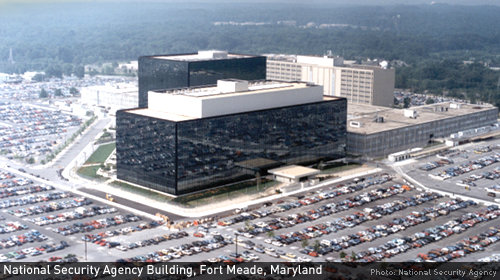NSA Surveillance
All Cases
10 NSA Surveillance Cases

Court Case
Oct 2015
NSA Surveillance
ACLU v. Clapper - Challenge to NSA Mass Call-Tracking Program
On June 11, 2013, the ACLU filed a lawsuit challenging the legality of the National Security Agency’s mass collection of Americans’ phone records. The complaint argues that the dragnet violates the right to privacy protected by the Fourth Amendment as well as the freedoms of speech and association protected by the First Amendment. The complaint also charges that the program exceeds the authority that Congress provided in Section 215 of the Patriot Act. In May 2015, the Court of Appeals for the Second Circuit ruled that the call-records program violates Section 215 of the Patriot Act. Weeks later, on June 1, 2015, Section 215 briefly expired for the first time since the passage of the Patriot Act in 2001. The next day, Congress passed the USA Freedom Act, which amended Section 215 to prohibit the bulk collection of Americans’ call records.
Explore case
Court Case
Oct 2015

NSA Surveillance
ACLU v. Clapper - Challenge to NSA Mass Call-Tracking Program
On June 11, 2013, the ACLU filed a lawsuit challenging the legality of the National Security Agency’s mass collection of Americans’ phone records. The complaint argues that the dragnet violates the right to privacy protected by the Fourth Amendment as well as the freedoms of speech and association protected by the First Amendment. The complaint also charges that the program exceeds the authority that Congress provided in Section 215 of the Patriot Act. In May 2015, the Court of Appeals for the Second Circuit ruled that the call-records program violates Section 215 of the Patriot Act. Weeks later, on June 1, 2015, Section 215 briefly expired for the first time since the passage of the Patriot Act in 2001. The next day, Congress passed the USA Freedom Act, which amended Section 215 to prohibit the bulk collection of Americans’ call records.

Court Case
Feb 2015
NSA Surveillance
Amnesty v. Clapper - Challenge to FISA Amendments Act
The Foreign Intelligence Surveillance Act (FISA), enacted by Congress after the abuses of the 1960s and 70s, regulates the government’s conduct of intelligence surveillance inside the United States. It generally requires the government to seek warrants before monitoring Americans’ communications. In 2001, however, President Bush authorized the National Security Agency to launch a warrantless wiretapping program, and in 2008 Congress ratified and expanded that program, giving the NSA almost unchecked power to monitor Americans’ international phone calls and emails. In February 2013, the Supreme Court dismissed the ACLU's lawsuit challenging the law.
Explore case
Court Case
Feb 2015

NSA Surveillance
Amnesty v. Clapper - Challenge to FISA Amendments Act
The Foreign Intelligence Surveillance Act (FISA), enacted by Congress after the abuses of the 1960s and 70s, regulates the government’s conduct of intelligence surveillance inside the United States. It generally requires the government to seek warrants before monitoring Americans’ communications. In 2001, however, President Bush authorized the National Security Agency to launch a warrantless wiretapping program, and in 2008 Congress ratified and expanded that program, giving the NSA almost unchecked power to monitor Americans’ international phone calls and emails. In February 2013, the Supreme Court dismissed the ACLU's lawsuit challenging the law.

Court Case
Oct 2014
NSA Surveillance
ACLU v. FBI - FOIA Case for Records Relating to Patriot Act Section 215
In May 2011, the ACLU filed a Freedom of Information Act request with the Justice Department seeking information about the government's use and interpretation of Patriot Act Section 215, which authorizes the government to obtain “any tangible thing” that is “relevant to” a terrorism investigation. Our subsequent FOIA lawsuit to enforce the request compelled the government to release dozens of documents, although many others were withheld from the ACLU and the public. The ACLU continued to fight for additional disclosures concerning the government’s use of Section 215 to secretly collect Americans’ information in bulk, but the district court eventually granted the government’s motion for summary judgment in March 2015.
Explore case
Court Case
Oct 2014

NSA Surveillance
ACLU v. FBI - FOIA Case for Records Relating to Patriot Act Section 215
In May 2011, the ACLU filed a Freedom of Information Act request with the Justice Department seeking information about the government's use and interpretation of Patriot Act Section 215, which authorizes the government to obtain “any tangible thing” that is “relevant to” a terrorism investigation. Our subsequent FOIA lawsuit to enforce the request compelled the government to release dozens of documents, although many others were withheld from the ACLU and the public. The ACLU continued to fight for additional disclosures concerning the government’s use of Section 215 to secretly collect Americans’ information in bulk, but the district court eventually granted the government’s motion for summary judgment in March 2015.

Court Case
Sep 2014
NSA Surveillance
ACLU v. NSA - Challenge to Warrantless Wiretapping
In 2006, in the first federal challenge ever argued against the NSA's warrantless wiretapping program, the ACLU defeated the Bush administration when a district court declared the program unconstitutional. But in July 2007, the 6th Circuit overturned that decision. The ACLU asked the Supreme Court of the United States to consider the ruling, but in February 2008, the Court declined to review the challenge.
Explore case
Court Case
Sep 2014

NSA Surveillance
ACLU v. NSA - Challenge to Warrantless Wiretapping
In 2006, in the first federal challenge ever argued against the NSA's warrantless wiretapping program, the ACLU defeated the Bush administration when a district court declared the program unconstitutional. But in July 2007, the 6th Circuit overturned that decision. The ACLU asked the Supreme Court of the United States to consider the ruling, but in February 2008, the Court declined to review the challenge.